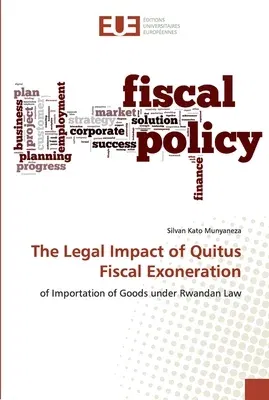Silvan Kato Munyaneza
(Author)The Legal Impact of Quitus Fiscal ExonerationPaperback, 23 May 2019

Qty
1
Turbo
Ships in 2 - 3 days
In Stock
Free Delivery
Cash on Delivery
15 Days
Free Returns
Secure Checkout
Print Length
80 pages
Language
English
Publisher
Editions Universitaires Europeennes
Date Published
23 May 2019
ISBN-10
6138476972
ISBN-13
9786138476979
Description
Product Details
Author:
Book Format:
Paperback
Country of Origin:
US
Date Published:
23 May 2019
Dimensions:
22.86 x
15.24 x
0.48 cm
ISBN-10:
6138476972
ISBN-13:
9786138476979
Language:
English
Pages:
80
Publisher:
Weight:
127.01 gm

